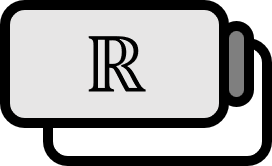Differentiation of Functions Defined in Real Number Space
Definition1
If in some $E$ containing $a$, $f$ is defined and the limit
$$ f^{\prime} (a) := \lim_{h \to 0} {{ f (a + h ) - f(a) } \over { h }}=\lim \limits_{x\rightarrow a}\frac{f(x)-f(a)}{x-a} $$
exists, then $f$ is said to be differentiable at $a$, and $f^{\prime} (a)$ is called the derivative of $f$ at $a$.
If $f$ is differentiable at every point $a \in E$, then $f$ is said to be differentiable on $E$. When $f$ is differentiable on $E$, $f^{\prime}$ defined on $E$ is called the derivative of $f$.
Description
The most welcome concept when studying analysis is differentiation. This is because, unlike sequences or integrals that reveal their complexity, differentiation retains its original essence. Despite the introduction of multiple integrals and partial derivatives, it remains relatively easy and straightforward compared to other concepts. The specific mention of ‘real space’ and partial derivatives in the context of differentiation hints at its potential expansion into multidimensional spaces.
Theorem
(a) Continuity: If $f$ is differentiable at $a \in E$, then it is continuous at $a \in E$.
(b) Chain Rule: $( g \circ f)' ( a ) = g ’ ( f (a) ) f '(a)$
(c) Inverse Function Theorem: Suppose $f : E \to \mathbb{R}$ is a one-to-one continuous function on an open interval $E$. (i) If for some $a \in E$, $b = f(a)$ and (ii): $f ' (a) \ne 0$ exists, then $f^{-1}$ is differentiable at $a$, and
$$ \left( f^{-1} \right)' (b) = {{ 1 } \over { f '(a) }} $$
William R. Wade, An Introduction to Analysis (4th Edition, 2010), p98-99 ↩︎
